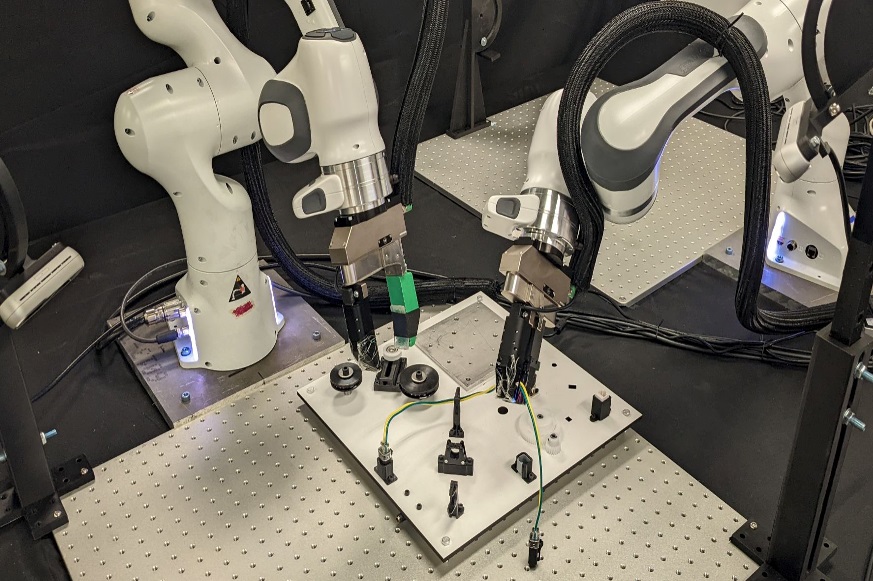Seetharaman and She Awarded ACSI Grant from Purdue College of Engineering
| Author: | Dave Montgomery |
|---|
That's the challenge being tackled by IE's Sivaranjani Seetharaman and Yu She, who were recently awarded a seed grant from the Purdue College of Engineering: Autonomous and Connected Systems Initiative (ACSI).
Human-robot collaboration is expected to revolutionize factories in the future by working with humans to perform tasks such as picking, palletizing, assembling items and more. Safety is a critical aspect of this future scenario, but there are challenges when it comes to developing this sort of collaboration between humans and robots.

For one, it is challenging to provide rigorous and provable guarantees of safety in a real-world scenario. Additionally, safety constraints can have a severe impact on the efficiency of accomplishing tasks.
Seetharaman, the principal investigator for this effort, states that reinforcement learning (RL) approaches have recently been successful when it comes to enabling robots to learn and adapt to the behavior of humans and uncertain environments.

The goal of this research is to "develop a theoretical framework as well as an experimental proof-of-concept for risk-tunable safe reinforcement learning for human-robot collaboration" to address these challenges.
According to She, the team is fortunate to have received this grant, as there were only 3 research proposals chosen for funding with their proposal being one of them. The grant will provide $73,000 for support over a 24 month period.
